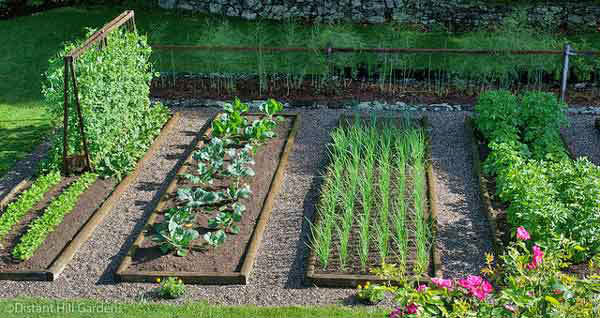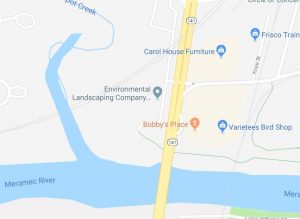Vegetables and Annuals – Time to Plant in the St. Louis Metro Area!
Advice for Your St. Louis Vegetable Gardens
One of the most important tips we share with our St. Louis landscaping customers in May is planting their annuals and vegetable gardens. This should be done after May 15th and take place over the next few weeks if possible..
Remember that an annual plant is a plant that completes its life cycle, from germination to the production of seed, within one year, and then dies.
Summer annuals germinate during spring or early summer and mature by autumn of the same year. (One pesky summer annual that we have talked about often is crabgrass.)
In comparison, winter annuals germinate during the autumn and mature during the spring or summer of the following calendar year.
Start Vegetable Garden Now
Because now is the time to plant annuals, this means your vegetable garden should be started now too.
Why? Because many food plants are (or grown as) annuals. Though not typically cultivated by anyone other than large property owners, virtually all domesticated grains are annuals.
Then there are many perennials and biennials which are grown in St. Louis gardens as annuals for convenience, particularly if they are not considered cold hardy for the local climate.
Carrot, celery and parsley are true biennials that are usually grown as annual crops because of the potential for very harsh Midwestern winters. Tomato, sweet potato and bell pepper are tender perennials usually grown in the same way.
Ornamental perennials commonly grown as annuals are impatiens, wax begonia, snapdragon, Pelargonium, coleus and petunia.
Examples of true annuals include corn, wheat, rice, lettuce, peas, watermelon, beans, zinnia and marigold.
Apply Plant Food
This is the best time to apply plant food too, both for the new vegetables and annuals you just put into the ground, and also your other plantings around your property. Make sure to do some research about what type(s) of plant food is best for the variety you are feeding too. Edible plants can be very different than others, and we’ve made note that specific varieties (like roses) have different needs, also dependent on the age of the plant.
This is a good time to finish spade edging and mulching your planting beds too, as there will soon be other items on your list to get to, and the time you need to do these things is now when you have the opportunity. Of course, as with all things we discuss Environmental Landscaping is here to meet whatever needs you may have – from complete landscaping overhauls and building of material features to basic lawn care and doing all the various tips we advise here on our monthly blog.
At Environmental Landscaping, the first thing we want to grow is our relationship with you, and we’d love to meet with you one-on-one to discuss your landscaping and the other components of a beautiful property with you first hand, and share our advice and suggestions on what you can do to make your outdoor spaces really shine! When you are looking for a landscaper in Chesterfield, Olivette, University City and Maryland Heights…or anywhere in between, we hope you’ll give us a call (636) 225-3848 or contact us to learn more!
We’ll be happy to share with you more tips, and let you know more about our quite extensive service area for many projects.
Tory Catanzaro, Owner – Environmental Landscaping








